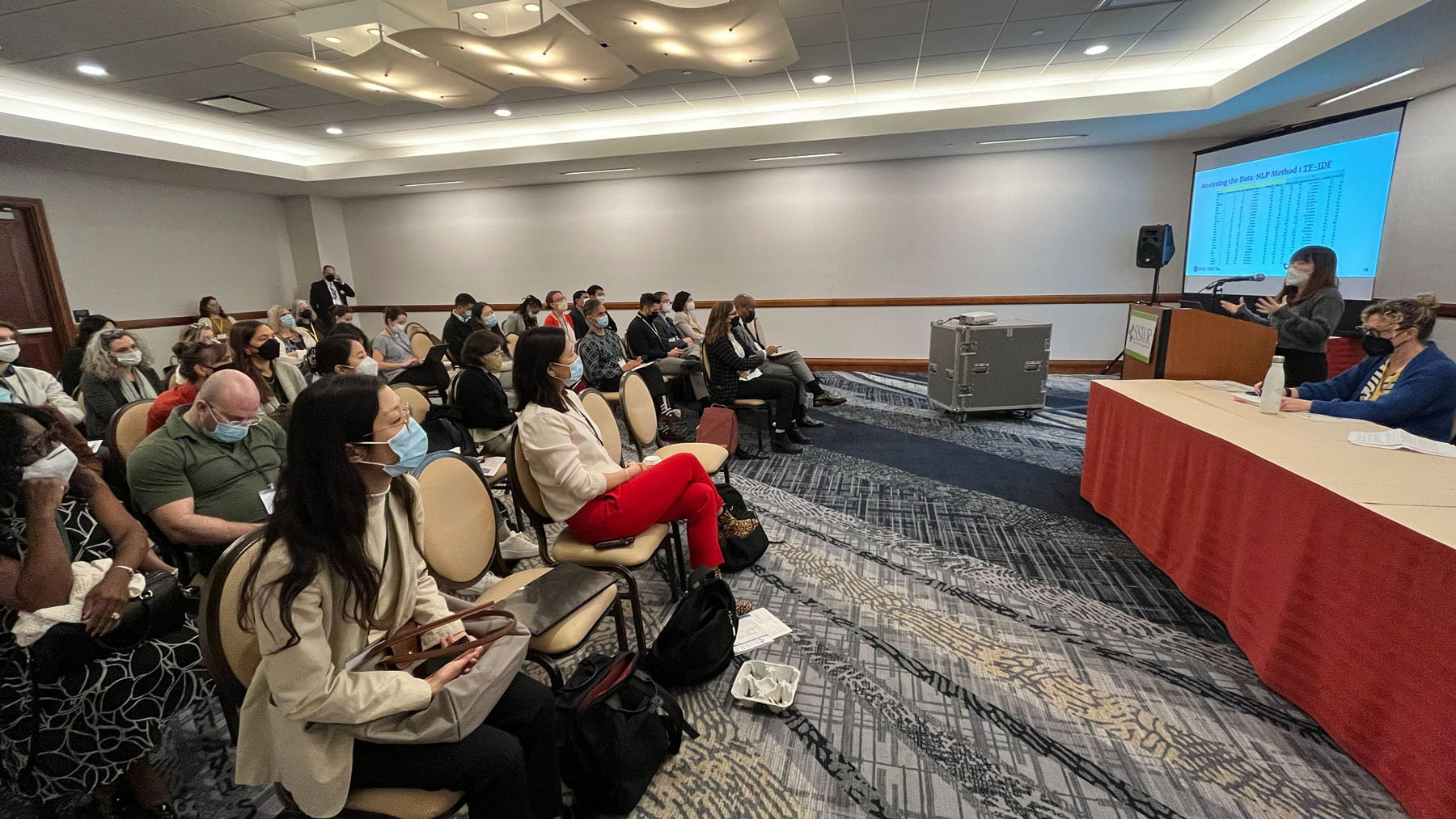Artificial intelligence is rapidly reshaping many aspects of human life, with impacts relating to equity, social good and potential harms.
Thanks to a transformational gift from Dr. Constance Silver and Martin Silver, we are leading the social work profession in how we harness artificial intelligence and data science to conduct innovative research, develop life-changing interventions and lead important conversations.
In October, the AI Hub at McSilver hosted Dr. Timnit Gebru, founder and executive director of the Distributed Artificial Intelligence Research Institute (DAIR) for an illuminating, virtual discussion about how the algorithms that affect our daily lives — from Siri and Alexa; to online search, banking and job apps; to surveillance or healthcare service systems— can place disproportionate harm on BIPOC and other marginalized people, as well as ways they can be used to repair harm. Dr. Gebru was joined by Minerva Tantoco, Chief AI Officer at the NYU McSilver Institute for Poverty Policy and Research; and moderator Christopher Hemphill, Director of Commercial Intelligence at Woebot Health.
 Our work in this area also underscores the power of AI and data science to address inequities. At this year’s Society for Social Work Research conference, our Constance and Martin Silver Center on Data Science and Social Equity (C+M Silver Center) held a standing-room-only symposium, where our faculty and PhD students gave presentations about employing natural language processing to measure person-centered care, utilizing geocoded Twitter data to predict Asian American well-being in the face of COVID-era bias and the ethical implications of using machine learning to predict cognitive functioning across racial groups. C+M Silver Center Director of Operations Amanda Ritchie organized the symposium, while the presenters and discussants included Drs. Doris Chang, Ernest Gonzales, Michael A. Lindsey and Victoria Stanhope; and doctoral students Daniel Baslock, Cliff Whetung and Nari Yoo.
Our work in this area also underscores the power of AI and data science to address inequities. At this year’s Society for Social Work Research conference, our Constance and Martin Silver Center on Data Science and Social Equity (C+M Silver Center) held a standing-room-only symposium, where our faculty and PhD students gave presentations about employing natural language processing to measure person-centered care, utilizing geocoded Twitter data to predict Asian American well-being in the face of COVID-era bias and the ethical implications of using machine learning to predict cognitive functioning across racial groups. C+M Silver Center Director of Operations Amanda Ritchie organized the symposium, while the presenters and discussants included Drs. Doris Chang, Ernest Gonzales, Michael A. Lindsey and Victoria Stanhope; and doctoral students Daniel Baslock, Cliff Whetung and Nari Yoo.
Meanwhile, our WeCare study, which responds to an urgent need for an effective suicide risk detection, treatment, and prevention strategy for Black youth, is under way in two hospitals within the New York City Health + Hospitals system. It uses a predictive algorithm in its suicide risk screening tool, along with a culturally-adapted suicide prevention intervention. The study is operating under a five-year, $5.8 million R01 research grant that was awarded by the National Institute of Mental Health to the Silver School and the Steinhardt School of Culture, Education, and Human Development. It is based at the NYU McSilver Institute for Poverty Policy and Research and NYU’s Institute of Human Development and Social Change. The Principal Investigators include Dr. Lindsey, and Drs. Pamela A. Morris-Perez of NYU and Cheryl A. King of the University of Michigan.
In June, the C+M Center served as a host for the Summer Institutes in Computational Social Science, which brought together graduate students, postdoctoral researchers, and early career faculty from social work and other disciplines to promote collaboration and research on computational social science for social good. The gathering is yet another instance of the School’s leadership in the cutting edge frontiers of our field.

